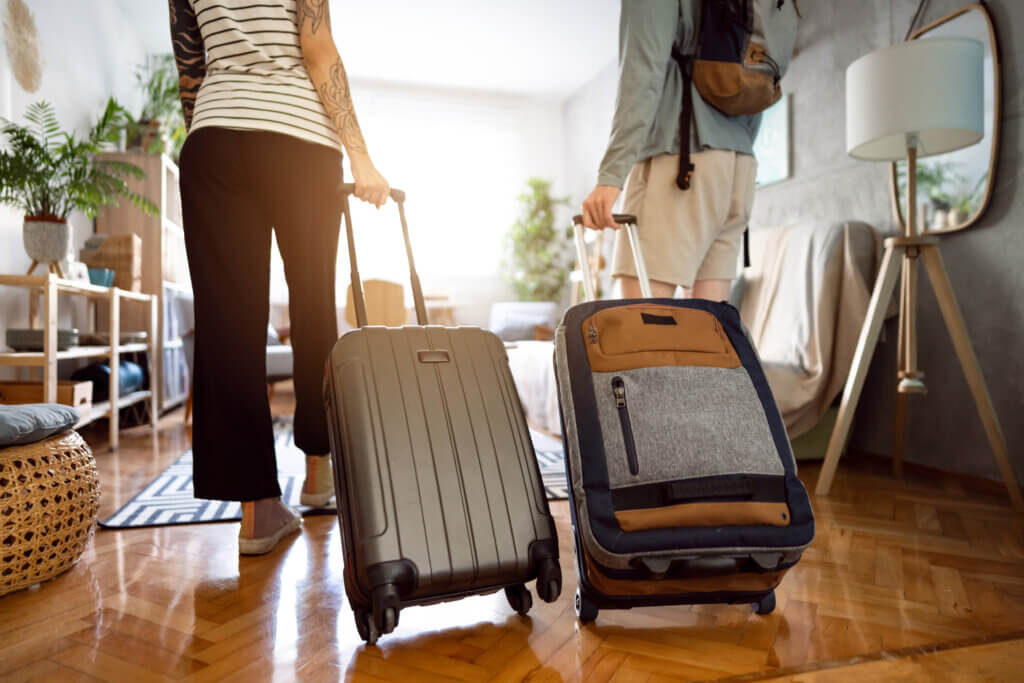Have you booked a vacation? Maybe you’re just visiting family for the holidays? Maybe you’re going on a nice, long, Caribbean cruise… ahhhh. Don’t let your vacation be interrupted by tiny, hitchhiking bed bugs. Since one out of five Americans has had a bed bug infestation in their home or knows someone who has encountered bed bugs at home or in a hotel, knowing where to look, how to avoid them, and what to do when you get home will help keep your relaxing holiday… well, relaxing.
Bed Bugs Are on the Rise – But Why
With the stories coming out of Paris, France in particular, it seems like bed bug activity is on the rise. PestWorld noted that bed bug activity in 2023 has increased by 66 percent! But why? There are 3 reasons:
- Bed bugs have grown resistant to some of the more traditional methods of dealing with them. The ones that could be killed were, leaving behind the ones with genetic traits that helped them escape these pesticides. These traits were passed onto the next bed bug generations, eventually creating infestations that are more difficult to get rid of.
- People are traveling again. Travel was down during the pandemic and so were bed bug infestations – but only because travel was down! Once people got bored and realized that getting a virus was just as likely at the grocery store as it was on a warm island, they got back to traveling and enjoying life. The bed bugs didn’t die out during the down time in travel, they just got hungry, and now they get to eat.
- General misinformation and false conceptions about bed bugs have allowed them to spread. As the Parisians and the people visiting Paris are learning bed bugs aren’t only in beds. They can hide in furniture, clothes and suitcases, and can infest offices, public transit, movie theaters, gyms – just about anywhere their meal will be. And their meal is people.
Where to Look for Bed Bugs in Your Room

Bed bugs don’t care about five stars. They can be found in a rear-facing balcony cabin on your cruise ship as easily as a small, local motel. Check your room before settling in, even if it’s spotless. Immediately put your luggage in the bathroom so it will be far away from the usual bed bug hiding places while you inspect. Thoroughly check the bedding, box spring, bed skirt, side tables, and even the alarm clock, anywhere small bugs could hide. If you don’t see any bugs, but you do see what looks like brown or red dots on the fabric areas, that could be bed bug poop. Bring a small flashlight with you. It can help if there’s a power outage, but it will also make your inspection easier to do – especially behind things where it can be pretty dark. It will help shine the light (literally) on any eggs or shells bed bugs discard during molting. Finally, check the rest of the furniture and any nooks or crevices — think baseboards, moldings, and floors — around the room. A sweet, musty smell may also mean there are bedbugs. But it could also mean the room isn’t clean. Request another even if you don’t find evidence of bed bugs if that’s the case. And certainly, request another if you do find any evidence of bedbugs. Contact the hotel staff, leave the room with your belongings, and request a room in another part of the hotel nowhere near the infested one. Bed bugs are adept travelers and can easily make their way to adjacent rooms.
What to Do About Bed Bugs During Your Stay
Remember, bed bugs aren’t only in hotel rooms. They can be on the plane, train, or subway, hitching a ride on the person next to you, in common rooms on a cruise ship, etc. A hard suitcase may be a better choice than soft luggage. Hard luggage has fewer crevices where bed bugs can hide and not a lot of area to cling to. You can try wiping down your suitcase with rubbing alcohol but only do so in a well-ventilated area keeping in mind it’s also flammable! Check your belongings after a day out to make sure you’re not bringing any bugs into your hotel room and utilize the laundry service or just the dryer in the laundry room to kill bed bugs during your stay.
What to Do About Bed Bugs After You Return Home

After your trip, unpack your bags in the bathroom against a light-colored surface, so you can spot any bugs. Then shake out the clothing in a bathtub or shower and vacuum out your luggage. Don’t forget to empty the vacuum and dispose of its contents in a tightly closed bag outside your home. You don’t want to do all that just to reinfest your home from the garbage. Wash your clothes (and anything else you can put through) and then put everything in the dryer at the hottest setting for at least 20 minutes to kill bed bugs and bed bug eggs. Then you can turn it down to dry your items the rest of the way. If you think something you brought home with you from vacation has been exposed to bedbugs and it can’t go in the dryer, seal it in an airtight plastic bag and leave it in a warm area for six months. That’s about how long it will take for the resilient bed bug to die from lack of water. But, who wants to wait that long? You can always have the item treated by a professional pest control company. You don’t have to have your whole home treated, but if you suspect bed bugs at all, it’s a good idea to get in front of them. They can multiply at an obnoxiously fast rate and an introduction can turn into an infestation in no time.
Bed bugs are the last thing you want to think of when you’re lying on the beach, walking through a museum, or having dinner with the family. We get it. But bringing them home with you is worth the couple minutes every day and when you get there (and home) to take the necessary precautions. But be warned: bed bugs may be easily confused with other pests. It was reported that 84 percent of pest control professionals were initially contacted about a different type of pest before identifying them as bed bugs. So, have a professional come in to make sure you know what kind of pest you’re dealing with. Bed bug treatments are not the same as cockroach treatments. Treating for the wrong kind of pest can not only delay the eradication of them, but it can also give them more time to multiply!